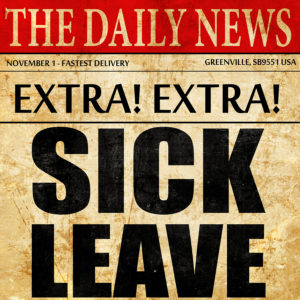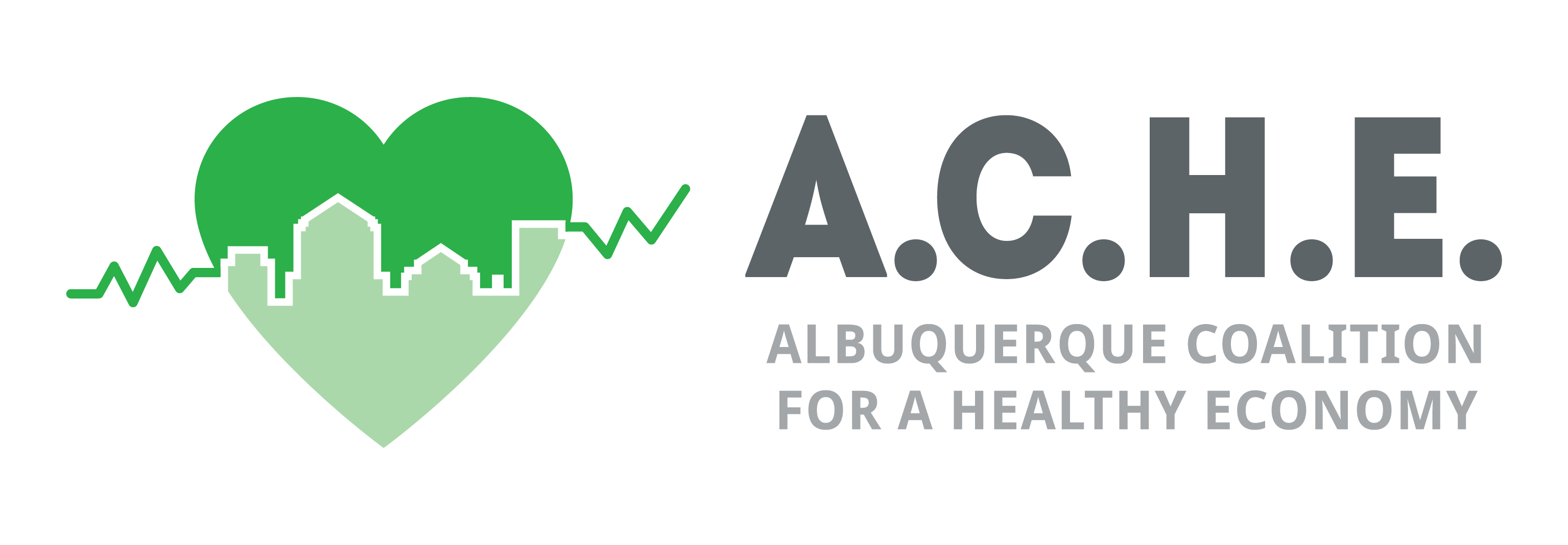All posts by Admin
Studies Show Paid Leave Mandates Hurt The Economy

“One of the great mistakes is to judge policies and programs by their intentions rather than their results.” – Nobel Prize winning economist Milton Friedman
Sick Leave mandates look good on the surface but studies show that they come at the expense of lost hours and lower wages.
Every business person knows the consequence of increasing the costs of doing business. Either they must get more money in the door to pay the increase or something else must give. Any business person can tell you that increased government regulation and unfunded mandates puts a strain on the ability to employ more people.
Every new mandate comes at a cost. If businesses have to provide paid sick leave, their employees will face cuts in wages or other benefits, like health insurance, retirement, or vacation.
Here are three studies that show how sick leave mandates have negatively affected different cities:
The Effect of Mandatory Paid Sick Leave Policies – Reviewing the Evidence
Sick Leave Comes at Too High a Cost
By Carol Wight – Chief Executive Officer – New Mexico Restaurant Association –
Albuquerque Journal-Wednesday, July 12th, 2017.
A recent opinion piece by an Albuquerque restaurant owner shows she is passionately in support of a sick-leave ordinance. Unfortunately, it appears she has not read and analyzed the entire ordinance, or she would have a better appreciation and understanding of the significant costs and risks to her business and to all Albuquerque businesses imposed by this ordinance, far beyond just the cost of providing sick leave.
As the director of the New Mexico Restaurant Association, I have not only read the ordinance, but I have had it analyzed by human resources professionals and employment lawyers to evaluate the impacts to our members. Every new mandate comes at a cost, and the cost of this ordinance is significant. In fact, the only exception to compliance is for companies with collective bargaining agreements, which may be the real reason for this ordinance – to encourage growth in union membership.
Using the numbers from the proponents, the sick-leave ordinance would cost Albuquerque businesses an estimated $38 million annually. Where does this money come from? There is no extra money in the economy, there are no “fat cats” making these millions of dollars in Albuquerque. This is money that is going to make payrolls right now, and when it’s mandated to pay sick leave from payroll, the jobs of 107,000 workers will be at risk.
Albuquerque Journal Editorial

Editorial: Voters should know what they are really voting on
The Albuquerque Journal
By Albuquerque Journal Editorial Board
Monday, May 15th, 2017 at 12:02am
https://www.abqjournal.com/1003305/voters-should-know-what-they-are-really-voting-on.html
Governing by referendum might be good politics, but it’s bad policy. It’s just not a good idea to circumvent the elected body that voters have entrusted to represent them.
Sadly, that issue has for now been relegated to the category of academic debate in Albuquerque, where it is way too easy to get an initiative on the ballot. So attention now turns to the mechanics of how this works in the context of a city election.
In that regard, state District Judge Alan Malott and now the state Court of Appeals have made important rulings that mean voters will have the opportunity to read the proposed ordinance they are voting on, and if they can get through it, gain a feel for its scope and potential far-reaching impact.
The benign-sounding “Healthy Workforce Ordinance” is set to appear on the Oct. 10 city election ballot, barring a successful attempt by several business groups to knock it off on the argument it is unconstitutional “logrolling” that combines two separate issues into one for purposes of voting. Opponents also argue the referendum isn’t allowed under state home-rule provisions that govern Albuquerque.
While paid sick leave is a reasonable policy discussion to have – and the City Council would be an appropriate venue to vet proposals, weigh unintended consequences and draft legally sound legislation – the proposed ordinance is seven pages chock-full of unreasonable requirements ranging from coverage of temporary workers to onerous record-keeping requirements. It would eviscerate existing PTO policies now in effect at many companies, and, incredibly, it would enact a presumption of retaliation for any employment action that followed an employee’s use of sick time.
The ordinance would apply to full-time, part-time and temporary workers at any business with a physical presence in Albuquerque, could force some small businesses to simply close up shop and provide others with a reason to employ as few people as possible.
Finally, it would preclude any future City Council from reducing any of the benefits. Need to clean up the mess? It has to go back to the voters.
Is it any wonder supporters prefer that a sanitized summary go on the ballot rather than all seven pages of micromanaging and meddling?
Malott had ruled earlier the City Charter required the full ordinance to be published on the ballot. Several activist groups including Healthy Workforce ABQ and the OLE Education Fund asked the Court of Appeals to overrule Malott and instead allow a summary. The Court of Appeals declined and also refused a request to forward the question to the state Supreme Court.
If Albuquerque is going to run on referendum, voters at least deserve a fighting chance at knowing what’s fueling those decisions. These court decisions allow that to happen.
This editorial first appeared in the Albuquerque Journal. It was written by members of the editorial board and is unsigned as it represents the opinion of the newspaper rather than the writers.
Paid Sick Leave Full Text On Ballot In Albuquerque

A.C.H.E. Gets a Win!
Albuquerque taxpayers, employers and employees should all be relieved that the District Court, the New Mexico Supreme Court and now the New Mexico Court of Appeals have all rejected the Plaintiffs’ latest effort to hide and obscure the onerous and extreme details of their sick leave ordinance.
The Plaintiffs’ latest efforts to hide the details of their proposed sick leave ordinance by letting voters see ONLY a misleading summary (instead of the text and details of the seven pages) has now been rejected by the District Court (twice), the New Mexico Supreme Court and the New Mexico Court Appeals.
Ole´, formerly known as ACORN, and the other plaintiffs will now have to explain how their 7 page sick leave proposal in small print, does not constitute “voter fraud” by the inclusion of so many separate , expensive and extreme mandates that will drive employers and employees out of Albuquerque and New Mexico.
A.C.H.E., the Albuquerque Coalition for a Healthy Economy, filed a brief in opposition to the interlocutory appeal and the NM Court of Appeals agreed with our position and denied the plaintiffs’ filing.
Press Release Coalition Files Lawsuit
 FOR IMMEDIATE RELEASE
FOR IMMEDIATE RELEASE
April 3, 2017
COALITION FILES LAWSUIT OVER PROPOSED SICK LEAVE ORDINANCE
Log Rolling Unfair to City Voters and Damaging to Job Opportunities
(Albuquerque)-The Albuquerque Coalition for a Healthy Economy (A.C.H.E.) today announced a lawsuit against the City of Albuquerque in State District Court due to the Healthy Workforce Ordinance. A.C.H.E. members believe the proposed ordinance is a fraud on city voters because it hides a vast number of punitive, unnecessary and expensive details from public debate and consideration. The proposed ordinance funded by a collection of out of state special interests presents at least seven different questions as one. Voters will be forced to decide on the ordinance during the October 3rd Municipal Election. If enacted the ordinance will be the most expensive and expansive in the nation, leading to lost job opportunities and businesses to relocate.
“Presently, the healthy workforce ordinance is logrolling on steroids,” said Pat Rogers, attorney representing the Albuquerque Coalition for a Healthy Economy, “Voters who may favor the basic premise or parts of the basic proposal, will certainly disagree with the small print details hidden in the ordinance.”
“Most employers’ existing paid time off (PTO) policies will not be in compliance with the strict requirements of the Ordinance. So, employees will lose their PTO and have to revert to sick
leave and vacation time.” said Carol Wight, CEO of the New Mexico Restaurant Association and a member of the coalition.
The petition summary of the seven-page ordinance clearly outlines the diverse, varied and multiple questions being asked of voters.
- Requires Albuquerque employers to provide earned sick leave to employees who work as few as 56 hours in the city of Albuquerque at the rate of one hour of leave per 30 hours worked.
- Provides that employees may use sick leave for their own or a family member’s illness, injury, or medical care, or for absences related to domestic violence, sexual assault or stalking. Not just family injuries, care or treatment triggers coverage for the employee, but also anyone with a close relationship to the employee, the employee’s spouse or partner that needs care or treatment can trigger the sick leave time off.
- Provides that employees of businesses with 40 or more employees may use up to 56 hours of accrued sick leave each year, and employees of businesses with fewer than 40 employees may use up to 40 hours of accrued sick leave each year.
- Provides that employers must notify employees of their rights and maintain extensive records.
- Provides for public enforcement, a private right of action, and liquidated damages and penalties for noncompliance. Lawyer fees are mandatory only for plaintiffs. No penalties for false or fraudulent claims. The ordinance is written to make it essentially impossible for employers to raise any questions about the use of the sick leave.
In the 2012, Albuquerque minimum wage debate, District Court Judge Nan Nash identified the problem of log rolling in stark terms. Presenting more than one unrelated question to the voter as a question has been called ‘the vice of doubleness’ and is ‘“universally condemned’ as a species of voter fraud. Judge Nash held that because the proposed voter initiative (minimum wage) presents more than one issue for voters to decide with only one vote, it is invalid on its face. The same legal issues hold true for the sick leave ordinance.
This October, Albuquerque voters will be voting for mandatory paid sick leave for all Albuquerque employees based solely upon a brief, misleading 4-sentence description of a broad-reaching and harmful Ordinance.
The so-called Healthy Workforce Ordinance would require all employers, big and small, to provide all employees (full-time, part-time and temporary) within the city with paid sick leave.
Implementation of this law would have a significant negative impact on Albuquerque employers. If adopted, the Ordinance would not be subject to revision or compromise, and would go into effect without any public hearings or consideration of the harmful details.
“This is going to chase good employers out of Albuquerque and New Mexico in a hurry,” said Rogers.
###
About Albuquerque Coalition for a Healthy Economy
Albuquerque Coalition for a Healthy Economy is made up of 28 diverse business organizations and associations formed and dedicated to improving the metro area’s overall economy and defeating the Implementation of a sick leave ordinance that would have a significant negative impact on Albuquerque employers. To calculate the cost to your business visit https://abqche.org/
Paid Sick Leave Coalition’s Associations
Albuquerque Coalition for a Healthy Economy (ACHE)
- Albuquerque Economic Development
- Albuquerque Economic Forum
- Albuquerque Hispano Chamber of Commerce (AHCC)
- American Subcontractors Association NM (ASA-NM)
- Apartment Association of NM (AANM)
- Associated Builders & Contractors NM (ABC)
- Associated General Contractors (AGC)
- Commercial Association of REALTORS® (CARNM)
- Greater Albuquerque Innkeepers Association (GAIA)
- Greater Albuquerque Association of REALTORS® (GAAR)
- Greater Albuquerque Chamber of Commerce (GACC)
- Home Builders of Central NM (HBA)
- Mechanical Contractors Association of New Mexico (MCA)
- National Association of Women Business Owners (NAWBO)
- National Federation of Independent Business (NFIB)
- NAIOP Commercial Real Estate Development Association
- New Mexico Association of Commerce & Industry (NMACI)
- New Mexico Business Coalition (NMBC)
- New Mexico Council of Outfitters and Guides (NMOG)
- New Mexico Hospitality Association (NMHA)
- New Mexico Restaurant Association (NMRA)
- New Mexico Retail Association (NMRA)
- New Mexico Roofing Contractors Association (NMRCA)
- New Mexico Utility Contractors Association (NMUCA)
- Rio Grande Foundation
- Sheet Metal & Air Conditioning Contractors Association of NM (SMACNA)
- Visit Albuquerque *(formerly Albuquerque Convention & Visitors Bureau)
